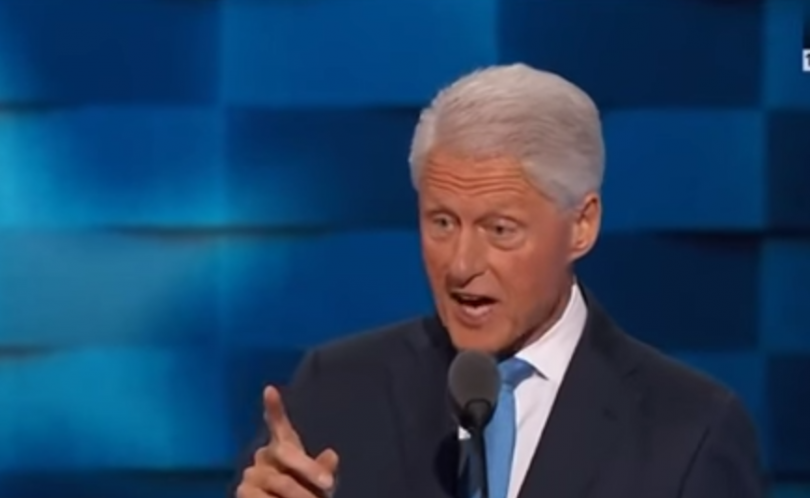By Jonathan Gang
BU News Service
On a night when Hillary Clinton became the first woman presidential nominee of a major political party, her husband, former president Bill Clinton, delivered a long keynote speech that followed the parallel stories of their 40-year relationship and Hillary’s accomplishments as a lawyer, activist, First Lady and Secretary of State.
Speaking in his trademark Arkansas drawl, Clinton began with a story of the first time the two met in a political and civil rights class at Yale Law School.
“After the class I followed her out, intending to introduce myself,” he said. “I got close enough to touch her back, but I couldn’t do it. Somehow I knew this would not be just another tap on the shoulder, that I might be starting something I couldn’t stop.”
He went on to tell a number of anecdotes from their long relationship, from Clinton’s many proposal attempts before their marriage in 1975, to the birth of their daughter Chelsea Clinton, to Clinton’s terms as Governor of Arkansas and President of the United States.
Throughout the speech Clinton focused on the bottom-line, practical results of Hillary Clinton’s years of work, from a report she filed while still in law school that led to changes in sentencing practices for young African American teenagers in South Carolina to the millions of lives saved by the generic prescription-drug-buying policies she put into place as Secretary of State.
“If you believe in making change from the bottom up,” he said, “if you believe the measure of change is how many people’s lives are better, you know it’s hard and some people think it’s boring. Speeches like this are fun. Actually doing the work is hard.”
In a stark contrast to the previous night’s speeches, the audience was nearly silent in between bouts of applause during Clinton’s speech. This was partly due to the exodus of hundreds of Bernie Sanders delegates from the convention, many of whom were participating in protests outside the convention hall that continued far into the night.
Clinton also used the his speech to challenge the narrative from last week’s Republican National Convention, where speakers portrayed Hillary Clinton as a corrupt, ineffective and weak candidate.
“What’s the difference in what I told you and what they said? How do you square it?,” he asked. “You can’t. One is real, the other is made up… Good for you, because earlier today you nominated the real one”





